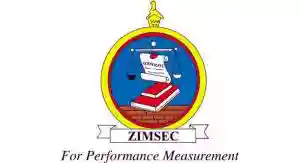The government of Zimbabwe has been urged to scrap examination fees in toto for children especially those in Government of public Schools.
This was said by Tag a life International (TaLI) after the government gazetted into law the new Education Amendment Act on the 6th of March 2020.
We present TALI’s full statement below.
16 March 2020
Education Amendment Act of 2019, Exam Fees
Every Child In School #ECIS Campaign welcomes the new Education Amendment Act which was gazettes into law on the 6th of March 2020. As a critical partner that pushed for the release of this law through petitioning parliament, ECIS wishes to congratulate the Zimbabwean government for putting to law its legal obligation to fulfill this basic human right. This is also a build up to the policy that the government released last year, the ‘Secretary’s Circular of 2019, again something that ECIS worked in partnership with parliament and the ministry to be put in place, with the goal of ensuring access to education for every child. We also acknowledge the response to ECIS request from the minister through our press statement dated 24 February where we requested the government to move exam fee due date for June exams from the 28th of February to a further date due to the disturbances that had occurred due to exam fee changes. We note in the press statement of the 11th of March that the Minister moved June registration to the 30th of March.
A short while ago the minister cancelled the exam fee increase which ZIMSEC had imposed which was too far from the reach of many. Just when we thought our voices that spoke against this increase had been heard, the Minister came back on the 11th of March with new fees that he reduced downwards with 53%. The news exam fees are $125 for grade 7, $90 per subject for ordinary level and $165 per subject for advanced level.
We wish to let the government know that these fees are against the basic right of the child to access state funded basic education:
- The state continues to shift the 47% of exam fees to be responsibility of parents, despite the constitution section 75 A, and the education amendment act 2019 being clear that it is the primary responsibility of this government to provide state funded basic education, therefore this is unacceptable and illegal.
- The government seems to continue to be highly detached from the suffering of citizens. Zimbabwe has more than 95% informal employment, meaning most families are living from hand to mouth. We have a significant percentage of children who are failing to get into formal education system despite the availability of the policies and laws that now allow these kids access, many are resorting to ‘private collages’. These private colleges are poorly run and are mainly attended by poor families who have been either refused enrollment due to lack of money or pushed out of government schools. Through its grading, the government is regarding these children as being in ‘private colleges/schools’ and deserving of paying full exam fees which is an absolute violation of their rights and discrimination. If the government did it’s homework, it would have classified these colleges as deserving of same benefits the other government school children have. Many of the children will not seat these exams if the state does not fully fund examination fees for the largely poor children who constitute more than 70% of its learners.
- While the state has provided the progressive policies; Circular of 2009 which disallows children to be sent back home for failing to pay fees, circular 3 of 2019 which comprehensively allows children access to enrollment and outlines grounds for discrimination, as well as through the recently signed education amendment act, imposing exam fees is taking away from all these provisions. Why should a child be allowed access into school and kept without money for all these years only to be discriminated upon when it comes to be tested for what they have gained in knowledge through exam fees which they cannot pay? It is showing a glaring absence of the respect for the constitution, the education amendment act and all policies that promote child education. This discrimination of exam fees is glaring and the government must immediately address it.
- State funded basic education is not just about putting in place laws, it is about respecting, mechanizing and funding for infrastructure seriously and earnestly to achieve those provisions. Zimbabwe is the only government in the Southern African region whose children still pay for basic education.
- Every Child In School therefore urges the government of Zimbabwe to review its position and scrap examination fees altogether for children especially those it classifies as Government Schools, Local Authority Schools and Non Profit Mission Schools as well as the mushrooming private colleges.
- We further encourage the government to fund basic education seriously by allocating adequate funds to meet these costs. In the past the ministry of education has received large sums of the fiscal allocation that only meet personnel costs, and little has been done to resource the commitments directly for learners. Schools remain under funded forcing them to go against the government policies that promote access to state funded education.
- We reiterate that this government must put practical measures to ensure children have access to state funded basic education, and that in its actions the government shows its realisation of what the law says in its responsibilities to ensure state funded basic education. Imposing such exam fees is not one of actions showing that responsibility, abolishing exam fees will ultimately ensure Zimbabwe children begin to enjoy their right to state funded basic education.

